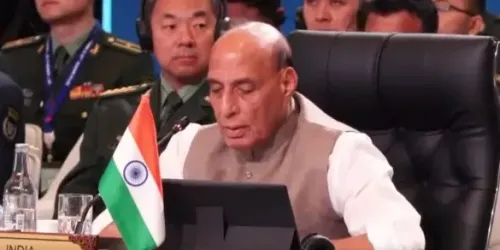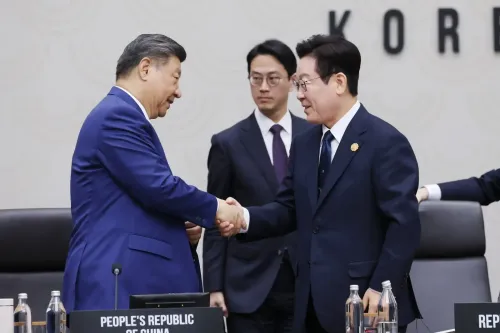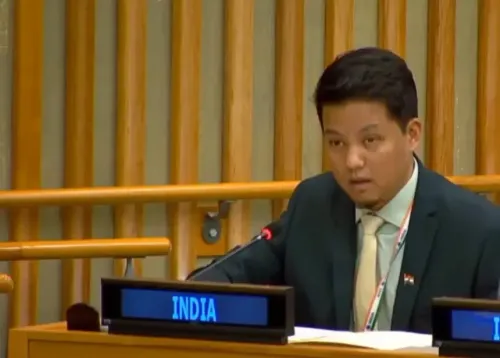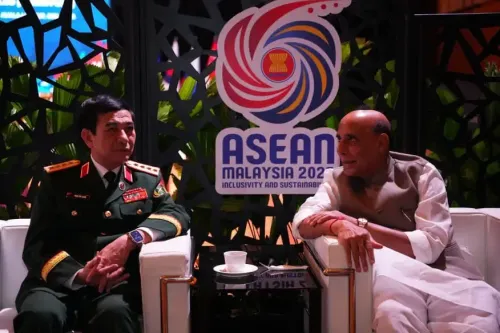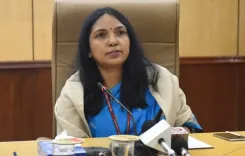South Korea: Special Warfare Chief of the Army Detained in Martial Law Investigation
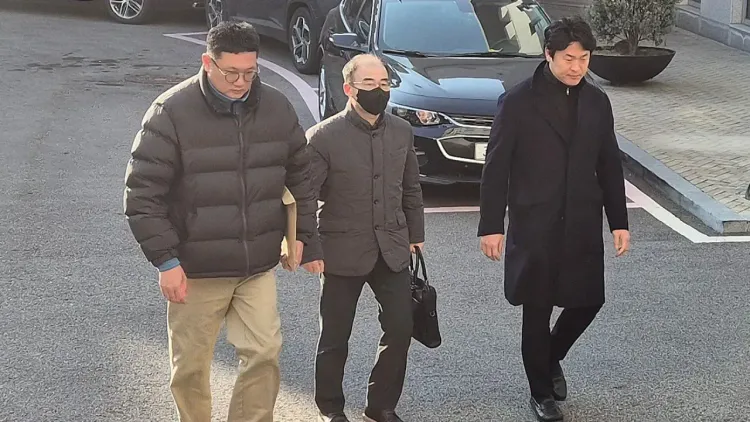
Seoul, Dec 16 (NationPress) The Army Special Warfare Command of South Korea has seen Lt. Gen. Kwak Jong-keun arrested on Monday after a military court issued an arrest warrant due to his purported involvement in the brief enforcement of martial law this month.
The court granted the warrant for Lt. Gen. Kwak Jong-keun, who stands accused of having an 'integral' role in an insurrection and misusing his authority in relation to President Yoon Suk Yeol's declaration of martial law on December 3.
Following the court’s ruling, Kwak becomes the second military official to face arrest in connection to the martial law situation, after Lt. Gen. Yeo In-hyung, head of the Defence Counterintelligence Command, was taken into custody on Saturday.
Kwak, who dispatched special operations forces to the National Assembly during the declaration of martial law, is accused of inciting a riot aimed at undermining the Constitution by allegedly colluding with Yoon, former Defence Minister Kim Yong-hyun, and others.
Earlier this month, Kwak had been suspended from his duties and stated to lawmakers on Tuesday that Yoon had commanded him to breach doors and 'drag out' members of the National Assembly during the martial law enforcement; however, he asserted that he resisted these orders, as reported by Yonhap news agency.
He also noted that he had been instructed by Kim on December 1 to secure six locations, which included the National Assembly, three offices of the National Election Commission, and the headquarters of the main opposition Democratic Party.
Meanwhile, the military court is also set to consider whether to issue an arrest warrant for Lt. Gen. Lee Jin-woo, head of the Capital Defence Command, on the same day.
Lee is accused of deploying approximately 200 troops to encircle the National Assembly following the declaration of martial law.
On Saturday, the National Assembly voted to impeach President Yoon Suk Yeol over his flawed imposition of martial law, suspending him from his duties until the Constitutional Court determines whether to reinstate or remove him from office, with citizens expressing their approval of the impeachment.
The impeachment motion against Yoon passed with a count of 204-85, along with three abstentions and eight invalid votes, after all 300 assembly members participated in the voting process.
This motion was approved just 11 days after Yoon unexpectedly declared martial law, triggering national outrage as troops surrounded the National Assembly compound in what appeared to be an attempt to prevent lawmakers from reversing the decree.

